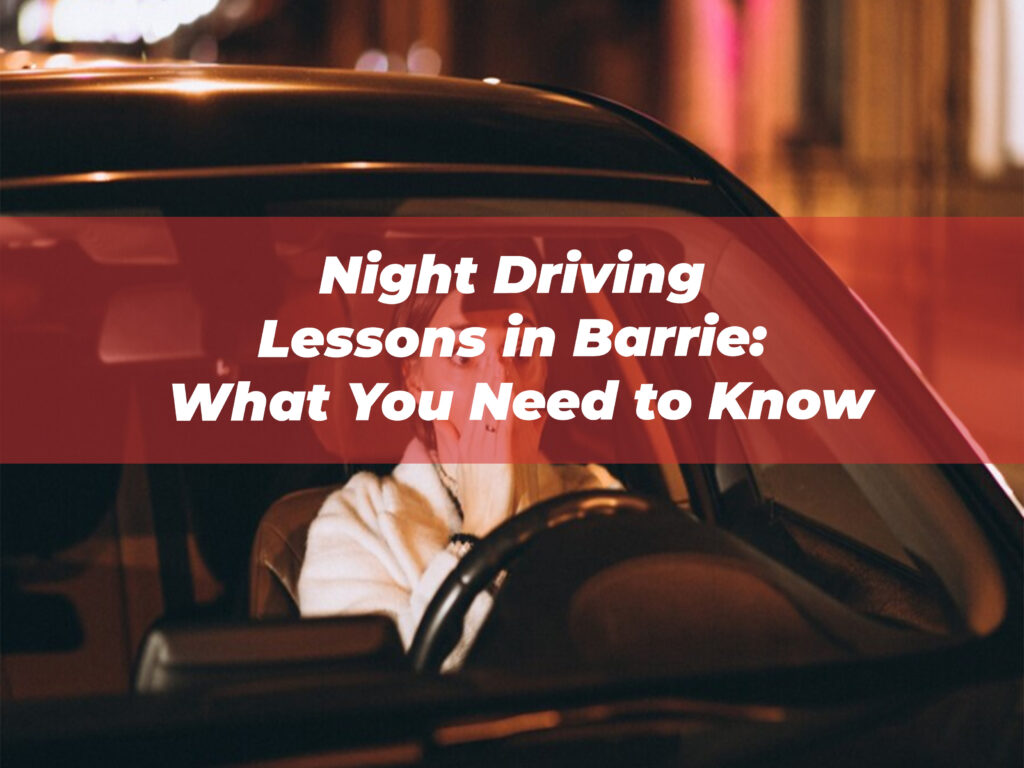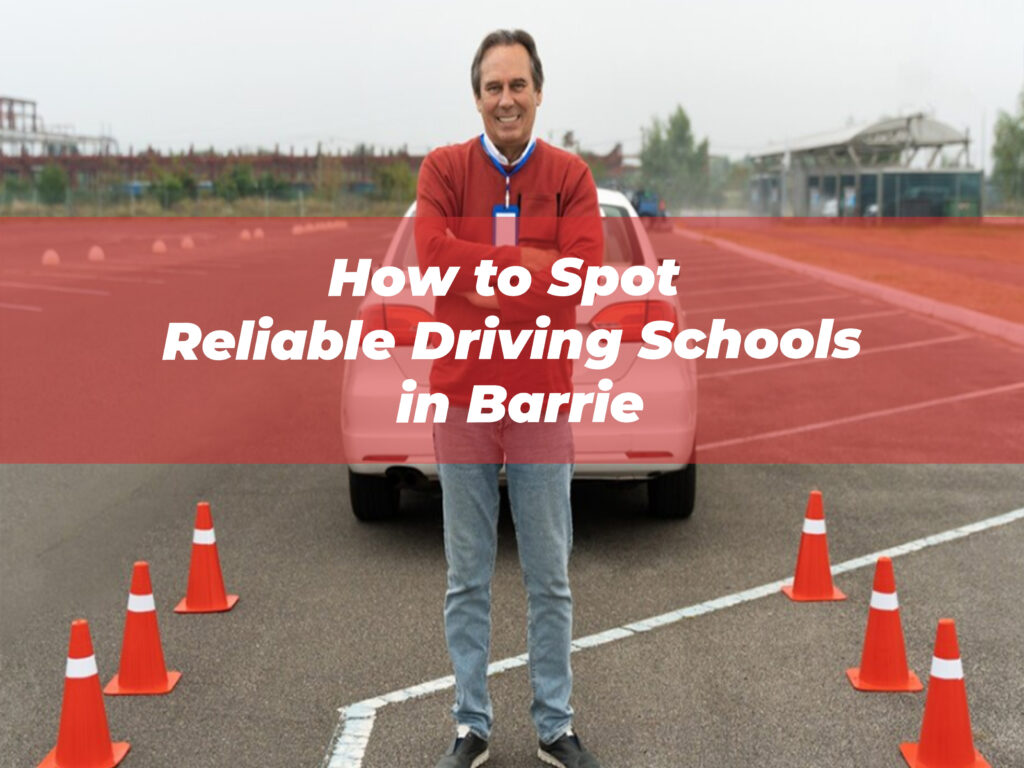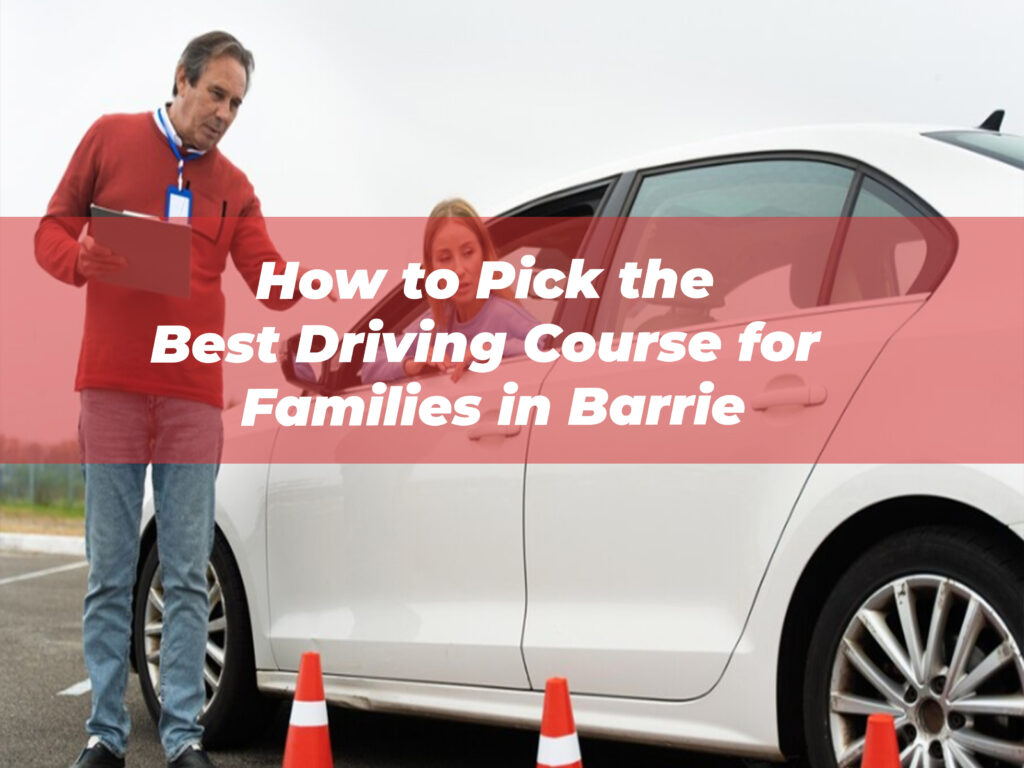Driving is a crucial skill that offers independence and flexibility, but mastering the art of safe driving goes beyond passing your test or handling a vehicle during daylight hours. Night driving poses unique challenges, even to seasoned drivers, making it a critical area to focus on during your learning process. If you live in Barrie or are considering learning to drive in this scenic town, night driving lessons are an essential step to ensure you stay safe and confident on the road at all hours.
This blog will explore why night driving lessons are so important, the challenges they tackle, and why Barrie is a fantastic place to learn this vital skill. We’ll also share tips and insights to help you prepare for night driving and explain how these specialized lessons can elevate your overall driving ability.
Why Night Driving Lessons Matter
Many new drivers don’t realize that driving at night involves an entirely different set of skills compared to daylight driving. A lack of sunlight changes visibility, reaction times, and how the road appears, making night driving an intimidating experience if you’re unprepared. According to safety studies, the risk of accidents increases significantly after dark due to reduced visibility and driver fatigue.
Night driving lessons ensure new drivers can operate in these conditions safely. They teach you how to deal with nighttime hazards like glare, low lighting, and reduced depth perception. With tailored guidance, learners build the confidence to face nighttime challenges head-on and adopt habits that prioritize safety. Ultimately, these lessons aren’t just about passing a driving test; they’re about helping you adapt and thrive in all driving conditions.
Challenges of Driving at Night
Driving at night presents unique obstacles that even experienced drivers sometimes struggle with. Understanding these challenges is the first step in preparing yourself to face them during your lessons and beyond.
1. Reduced Visibility
When daylight fades, your ability to see clearly diminishes, and hazards on the road become harder to detect. Pedestrians, cyclists, and animals crossing the road may not be obvious until it’s too late. Additionally, signs, road markings, and unlit areas further limit visibility, making it harder to predict what’s ahead.
2. Glare from Oncoming Lights
Oncoming headlights or bright streetlights can be disorienting, especially for new drivers. Glare can temporarily blind you or distort your vision. This effect is even more pronounced in areas where high beams are used improperly.
3. Driver Fatigue
Nighttime driving often coincides with natural dips in energy levels as your body prepares for rest. This makes staying focused harder during night drives and could lead to slower reaction times.
4. Judging Distances
At night, visual cues shift. It’s harder to judge how far away other vehicles are, especially when their headlights are the primary indication of their location. This can make tasks like merging, overtaking, or judging stopping distances trickier.
5. Busy Urban Environments
For towns like Barrie, navigating urban areas at night can enhance the complexity of driving. Restaurants, entertainment hubs, and nightlife venues result in higher pedestrian activity, which drivers need to monitor carefully.
Night driving lessons are designed to address these challenges, equipping you with the tools and confidence you’ll need to drive safely after sunset.
Specialized Night Driving Lessons in Barrie
Barrie is an ideal place to take night driving lessons for several reasons. It’s a growing city that offers a mix of urban and rural driving experiences. From well-lit streets in downtown Barrie to the darker, quieter roads on the outskirts, learners can practice in diverse conditions, making the experience invaluable.
What to Expect in a Night Driving Lesson
Night driving lessons are structured to help you practice essential skills while becoming familiar with nighttime conditions. Here’s what you can generally expect:
- Navigating Low-Light Conditions: You’ll learn how to adjust your speed and spacing in reduced visibility, ensuring you’re prepared for unexpected hazards.
- Handling Glare: Your instructor will teach techniques to minimize distractions from oncoming headlights and help you use mirrors effectively to avoid dazzling yourself.
- Adjusting to Rural and Urban Settings: Barrie’s combination of city streets and quiet suburbs offers learners opportunities to practice both high-traffic navigation and lower-lit routes.
- Enhancing Awareness of Pedestrians and Cyclists: Night lessons emphasize vigilance in spotting vulnerable road users, especially in busy areas with nightlife.
- Recognizing Road Signs and Markings: You’ll familiarize yourself with the challenge of interpreting signs and road markings that may not be visible from afar.
With Barrie’s diverse driving environments, learners gain well-rounded experience that serves them well long after they’ve finished their lessons.
Benefits of Night Driving Lessons
Night driving lessons build foundational skills that support you both during testing and in daily driving. These benefits include:
- Building Confidence: Facing nighttime challenges with an expert by your side eliminates fears you might have about operating a vehicle in the dark.
- Learning Defensive Driving Skills: Night driving lessons emphasize staying alert, maintaining safe distances, and predicting other drivers’ actions.
- Mastering Situational Awareness: You’ll practice staying aware of your surroundings despite the reduced visibility, improving safety levels when driving at night.
Practical Tips for Night Driving
Whether you’re attending lessons or eventually driving independently, these practical tips will help you stay safe and comfortable during nighttime journeys.
1. Check Lighting Systems
Before you start your drive, inspect your headlights, taillights, and indicators to ensure they’re in good working condition. Proper lighting is essential not just for visibility but also for communicating with other drivers.
2. Clean Mirrors and Windows
Dirty mirrors and windows can scatter light and amplify glare, making night driving far harder. Keep these surfaces spotless for better visibility.
3. Use High Beams Wisely
High beams offer better illumination on rural roads, but they can also blind oncoming traffic. Always switch to low beams when approaching other vehicles or driving behind someone.
4. Avoid Over-Speeding
Speed limits are there for a reason, especially at night. Slow down to give yourself ample time to react to unexpected hazards like wildlife or poorly marked turns.
5. Take Breaks if You’re Tired
If you feel your focus drifting or fatigue setting in, don’t push yourself. Park in a safe location and rest for a while before resuming your drive.
6. Follow the Three-Second Rule
Keep a safe distance from the car ahead by using the three-second rule. Double this timing at night when reaction times are slower due to visibility issues.
7. Stay Vigilant for Pedestrians and Cyclists
Many bikers and pedestrians are harder to spot at night, particularly if they aren’t wearing reflective clothing. Pay extra attention in residential areas or near schools.
8. Avoid Distractions
Driving at night requires heightened focus. Avoid using your phone, fiddling with controls, or engaging in other activities that might take your attention off the road.

Insights into Barrie’s Driving Environment
Barrie is a unique town for learning night driving because of its community atmosphere and diverse road layouts. The city offers opportunities to practice in areas with varying levels of traffic, street lighting, and complexity, preparing learners for all sorts of nighttime conditions.
Learning in Downtown Barrie
Downtown Barrie, with its vibrant nightlife, offers ideal conditions for learners to practice navigating areas with higher pedestrian activity, illuminated intersections, and busy restaurants or event venues.
Exploring Rural Roads
Barrie also has quieter rural routes perfect for practicing high beams, steering precision, and adjusting to poorly lit areas. These roads teach caution and focus, especially when dealing with wildlife.
Seasonal Night Driving
As a Canadian city, Barrie sees plenty of snow during winter months, making it an excellent location to train for nighttime driving in slippery and icy conditions. Mixing these factors into your night driving lessons can be invaluable for long-term safety.
How to Choose the Right Driving School in Barrie
When it comes to night driving lessons, partnering with the right school in Barrie ensures you receive expert guidance tailored to your needs. Here are a few factors you should consider:
- Credentials: Choose a school that’s certified and works with experienced instructors.
- Lesson Flexibility: Look for schools offering dedicated night driving lessons or advanced packages that include nighttime sessions.
- Reputation: Research reviews and testimonials from past students to assess the quality of instruction.
The Road to Safer Night Driving Starts Here
Night driving lessons are not just a nice-to-have but an essential component of becoming a confident, capable driver in any condition. If you’re in Barrie, you’re uniquely positioned to benefit from an environment that offers a little bit of everything, from busy streets to serene, dimly lit roads. With the help of specialized lessons and experienced instructors, you’ll feel more prepared to hit the road and handle anything that comes your way.
Whether it’s learning how to manage glare, practicing defensive driving skills, or adjusting to reduced visibility, night driving lessons make a world of difference. Remember, safe driving starts with the right training and a commitment to staying alert and prepared. Invest in quality training today, and you’ll reap the rewards for years to come. Keep learning, stay safe, and enjoy the open roads of Barrie










